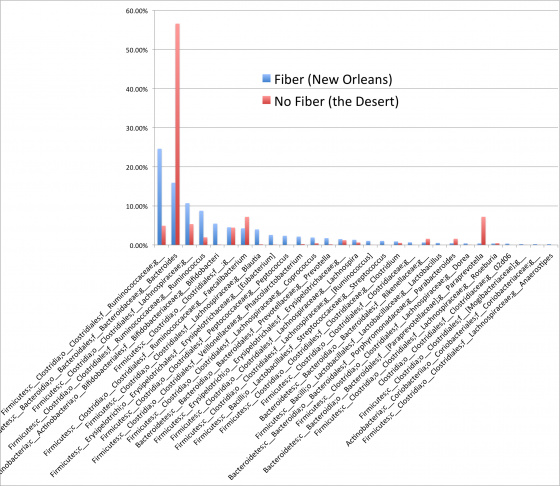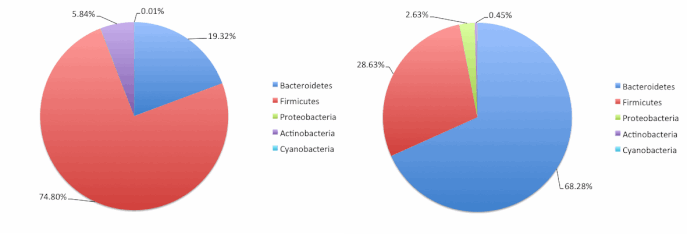Constipation is utterly miserable and really impacts on quality of life. I think people underestimate just how rotten it can make you feel. When I started keto it affected me and actually got me down. It has thankfully resolved with time and was just adjustment I think but it made me feel just urgh. I rejoice with you, therefore, over your, erm, ‘achievement’ today!
Warning! This is not for the squeamish
It’s funny is it not, I have so much to be thank full in my life, and I do express gratitude often, but today a simple good poo shaded all.
Haha!
I experience something v similar.
My guts seem happiest on no veg at all, or a lot of veg.
Trouble is, a lot of veg causes other problems.
The standard keto veg quantities just bung me up. So no veg is much more comfortable than some veg.

What I find fascinating about Jeff Leach’s adventurous exploration studying biome gut flora of diverse cultures around the world; the info in this article may be dated (2014) but still interesting to know? This is concerning his diet changes and gut flora biome ratios geographically:
Going Feral: my one-year journey to acquire the healthiest gut microbiome in the world (you heard me!) - Jeff Leach
As researchers continue to build the scientific case for the microbe-health connection in 2014, I’m embarking on a little self-exploration. On January, 1, 2014, I began the first of many diets that I hope will lead to a better understanding – at least for me – of not only what a healthier gut microbiome might look like in a modern world, but also more importantly, what it shouldn’t look like. I will be collecting daily stool samples along the way for subsequent 16S rRNA analysis throughout the next 365 days.
On Jan 1 I started a high fat-protein diet with very, very little carbohydrates and near zero quantities of dietary fiber. In short, I’m attempting to starve my microbes of much-needed substrates for growth – such as dietary fiber, resistant starch, etc. I’m not arguing that anyone should do this on a regular basis, nor am I suggesting this is a good or bad dietary strategy, but I am trying to whack my microbiome around a bit to demonstrate that significant shifts in your gut microbiota can be achieved in very short periods of time with significant shifts in macronutrients.
I experienced this past summer how dramatically you can shift your gut bugs with diet when I traveled from New Orleans to West Texas where I was held up for a few months trying to finish a book (BLOOM will be out this year!). As I drove out of New Orleans, I left behind a diet heavy on meat, but with a quantity and diversity of dietary fiber that would make Michelle Obama smile. But once I landed in the parched landscape of West Texas near Big Bend National Park, the little writers shack I rented lacked some modern niceties – like a kitchen. So I ate most of my meals at the local watering hole(s). Below is a graph of what happened to my gut microbes.
As the pie charts below reveal, I look like an entirely different person – microbially-speaking. On the left my New Orleans microbiome were dominated by the phyla Firmicutes (74.80%). But after only 2-3 weeks of greatly reduced consumption of dietary fiber – remember, I still ate lots of meat – my Firmicutes dropped to 28.63%, while my Bacteroidetes shot up. In other words, my Firmicutes and Bacteroidetes traded places in my new desert belly.
Digging a little deeper in the data reveals that much of this dramatic shift can be attributed to a handful of genera. The bar graph below shows that my Bacteroides (in the phyla Bacteroidetes) seem to really like my no, to super low plant intake – going from a mere 15.91% relative abundance in New Orleans to a whopping 56.59% in my near plant less desert diet. Consequently, the relative abundance of the Family Ruminococcaceae took a hit along with the Family Lachnospiraceae and the Genus Ruminococcus. These three are known plant fermenters – that is, they metabolize dietary plant polysaccharides – that didn’t seem to compete very well as the fermentable substrates (fiber, resistant starch) dried up.

Also of interest are my Bifidobacterium levels which went from 5.46% in New Orleans, to 0.10% and my levels of Paraprevotella (kissing cousin of Prevotella) went from a paltry 0.40% to a monstrous 7.20% in the desert (red bar spiking on right-hand side of graph). In the case of Bifidobacterium levels taking a hit – note I like Bifidobacterium as they are often cited as being part of a healthy and balanced gut flora – I would go out on a limb and suggest they were suppressed due to my lack onions, garlic, leek etc. Though I suspect I could be wrong – but that’s my hunch at the moment. As for the increase Paraprevotella, I would again go out on a limb and suggest this spike is attributed to my modest intake of whole grains via Muesli-like cereal – essentially eaten dry every morning in my desert home. Something I didn’t do in New Orleans. Anyone that follows this blog knows I have something of a (Para)Prevotella fetish and attribute the increased relative abundance in many/some folks as a sign of “whole” grain consumption, not fiber intake per se as often argued. Strikingly, elevated levels of Prevotella have been noted among HIV-infected individuals who exhibit chronic gut inflammation. In this study, the researchers suggest that Prevotella may thrive under conditions of inflammation. In another study, researchers found that Prevotella strongly correlated with new-onset untreated rheumatoid arthritis. On the flipside, reduced rather than increased levels of Prevotella correlated with kids diagnosed with autism compared to symptom-free neurotypical children in a recent study. However, it’s interesting to note that many families will place ASD kids on a gluten and casein free diet following diagnosis. Therefore, if my “out on a limb” theory that Prevotella levels are associated with whole grain consumption is near the mark, then lower levels of Prevotella in these diagnosed youngsters is not completely unexpected. In other words, in diagnosed ASD kids the lower to no levels of Prevotella may have more to do with diet than the disease state. But we will wait and see how this shakes out over the coming years. …” …More
Dr. Kenneth Brown - How Embarrassing Gas, Bloating & Constipation Happens & How To Get Rid Of It Forever
Low carbohydrate diets are unsafe and should be avoided
HELP! Severe Stomach Pain on Carnivore when any plant based food in TINY quantities are eaten
I’ve been thinking of trying this. I’ve been keto a year now and it’s improved every aspect of my life except this one. I’ve just been waiting and waiting for my body to adjust, but it just isn’t. My normal routine is close to a week with nothing, with the last two days getting increasingly uncomfortable, ending in a terrible sleep and a poo finally in the middle of the night  . I need to make adjustments for sure at this point.
. I need to make adjustments for sure at this point.
The feeling after a magnificent poop is hard to match!
To this day, when someone tells me they aren’t feeling well, I ask them “Have you pooped today?” It makes them laugh, because it’s so unexpected… then they think about it and half the time they say “You know what? I haven’t!”
Thanks for posting, very interesting. I think all my fibre eating gut flora will be starved to death now, maybe that was them making a “absolutely magnificent” exit a few days ago.
Early on, I had one day where I had seven (yes, you read that right) regular bowel evacuations. Full-on, once-a-day-type poos. I have no idea how much weight I lost that day, but was utterly amazed that I had THAT much inside me I’d been toting around. Since then been regular, unless I eat a bunch of cheese which can bind me up a bit. Good poos are the best start to a good day, right behind coffee, if you’ll forgive the mild pun. 
Best post I’ve read in a long time. I have the same issue - you may have inspired me to try zero carb!
I am always excited to go to the can! I’ve had a handful of days in 10 months low carb that I was constipated.
Fun, fun!
Do try it, I decided to try it for a month to see how it went. Almost 3 weeks in and everything is good just by dropping the veg. Like I said, I eat all types of meat’s usually buy what’s on offer, cheese (keep this for breakfast 2 oz, with a couple of eggs, and add some thick heavy cream to my breakfast coffee also.) Then simply meat for dinner, washed down with a glass of red wine. Excercising a little more as trying to build muscle after having reached goal weight. My bowel movements soooooo good now, regular every day, simple smooth poo.
Regular as clockwork, every morning at about 6-30 am. Only trouble is I don’t wake till 7-00 am.
I would also add, quite a considerable saving on buying the fresh veg I usually bought, Broccoli, Spinach, cauli, lettuce, tomatoes, Avocados etc on a daily basis. And then usually throwing the unused or past sell by date out.
That’s another perk I didn’t think about. Just threw out a bunch of veggies that rotted in the fridge last night! Thanks so much for sharing!
This is fascinating and i wish he was still blogging. But reading that inclines me to think that I’d like to keep diversity in my microbiome
Not sure if this will help, but I read that insufficient salt can contribute to constipation as well as not enough magnesium. I also use Calsium Ascorbate which is a buffered Vitamin C Powder and this has definitely solved constipation issues for me.

